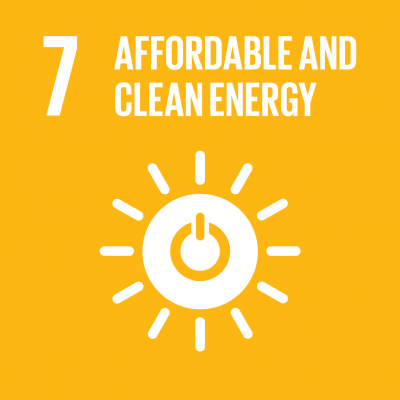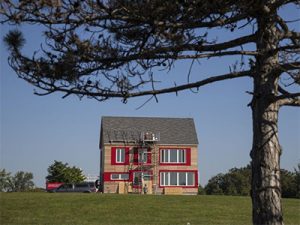Carleton University continues to implement actions and programs outlined in its Energy Master Plan, which provides key strategic direction for reducing energy usage, emissions, utility and carbon costs, and increasing campus engagement towards the university’s plan and individual actions. Carleton has set aggressive targets for carbon reduction, aiming for a 50% reduction by 2030 and carbon neutrality by 2050. To learn more about our efforts towards energy and carbon reduction, check out our Energy Master Plan.
STRATEGIC ACTIONS:
- Pursue the strategic objectives identified in the Carleton Energy Master Plan
- Minimize greenhouse gas emissions associated with the operation of the university campus and related infrastructure to achieve a 50% reduction by 2030 and a zero-carbon campus by 2050
- Achieve a 50% reduction in Scope 1 and 2 carbon emissions by 2030 and 100% by 2050 (using a 2005 baseline)
- Increase the use of on-campus renewable energy sources
- Reduce energy consumption by implementing energy efficiency and conservation measures
- Implement innovations, upgrades, preventative maintenance, and best practice solutions towards energy management and environmental protection
- Actively engage the campus community in energy use and reduction through improved targeted communications and data sharing.
Switch to LED lighting
In 2018, Carleton University replaced over 1,200 exterior lighting fixtures, including those in parking lots, roadways, pathways, and tunnels, with more energy-efficient LEDs. This project will result in annual savings of 652,000 kWh. The tunnel lighting was also included in the project, which received funding in part from the Green Revolving Fund. Overall, the LED lighting project will save the equivalent CO2 emissions of 93 homes’ energy for one year and provide annual cost savings of an estimated $115,000.
Green Buildings
Carleton University is committed to ensuring that all new construction and major renovations meet the minimum rating of 3 out of 5 globes with the Green Globes Rating system. Currently, 11 buildings on campus have been certified to this standard. To learn more about Carleton’s commitment to green buildings and the various measures and initiatives involved, please visit the Green Buildings page.
Energy Retrofits
Carleton University has completed large-scale energy retrofits in several buildings on campus, including Athletics, Robertson Hall, Loeb, Mackenzie, Minto CASE, Dunton Tower, and the Maintenance Building. These retrofits included building assessments and energy audits, LED re-lamping, control system replacements, plumbing fixture retrofits, installation of IT computer sleep software, and improvements to building exteriors.
The first phase of energy retrofit programs included five buildings, and has resulted in annual cost savings of $660,342 and GHG reductions of 1281 equivalent CO2 tons. Carleton University is targeting several other buildings for future implementation and retrofits.
To encourage energy conservation, Carleton University has developed the Green Workplace checklist and has promoted it to individual departments. The university has also installed Energy Display Screens in residences to provide real-time data on energy use to all residents. Additionally, a sustainable living floor has been developed to promote best practices.
Carleton Sustainable Energy Research Centre
Carleton University established the Carleton Sustainable Energy Research Centre (CSERC) in 2009 as just one initiative in a larger effort to develop research and teaching programs in sustainable energy. Through this research centre, Carleton undertakes world-class research and offers students a choice of academic programs to prepare them for their roles as the next generation of professionals and leaders. To tackle the emerging challenges in sustainable energy, Canada will require a combination of innovative engineering and progressive policies. Neither technology nor policy in isolation will be sufficient.
Solar Housing at Carleton – The C-RISE House
The Carleton Research and Innovation in Sustainable Energy (C-RISE) house, is designed to showcase innovative engineering and progressive policies to tackle sustainable energy challenges in Canada. The C-RISE house will utilize cutting-edge technologies such as solar thermal energy and seasonal thermal storage, serving as a test bed for various innovative concepts aimed at reducing overall energy demands. The single-family detached housing model dominates the residential sector and contributes to 17% of Canada’s total energy end use. The research conducted at C-RISE will be invaluable in finding ways to reduce energy consumption in the residential sector and promote sustainable living.